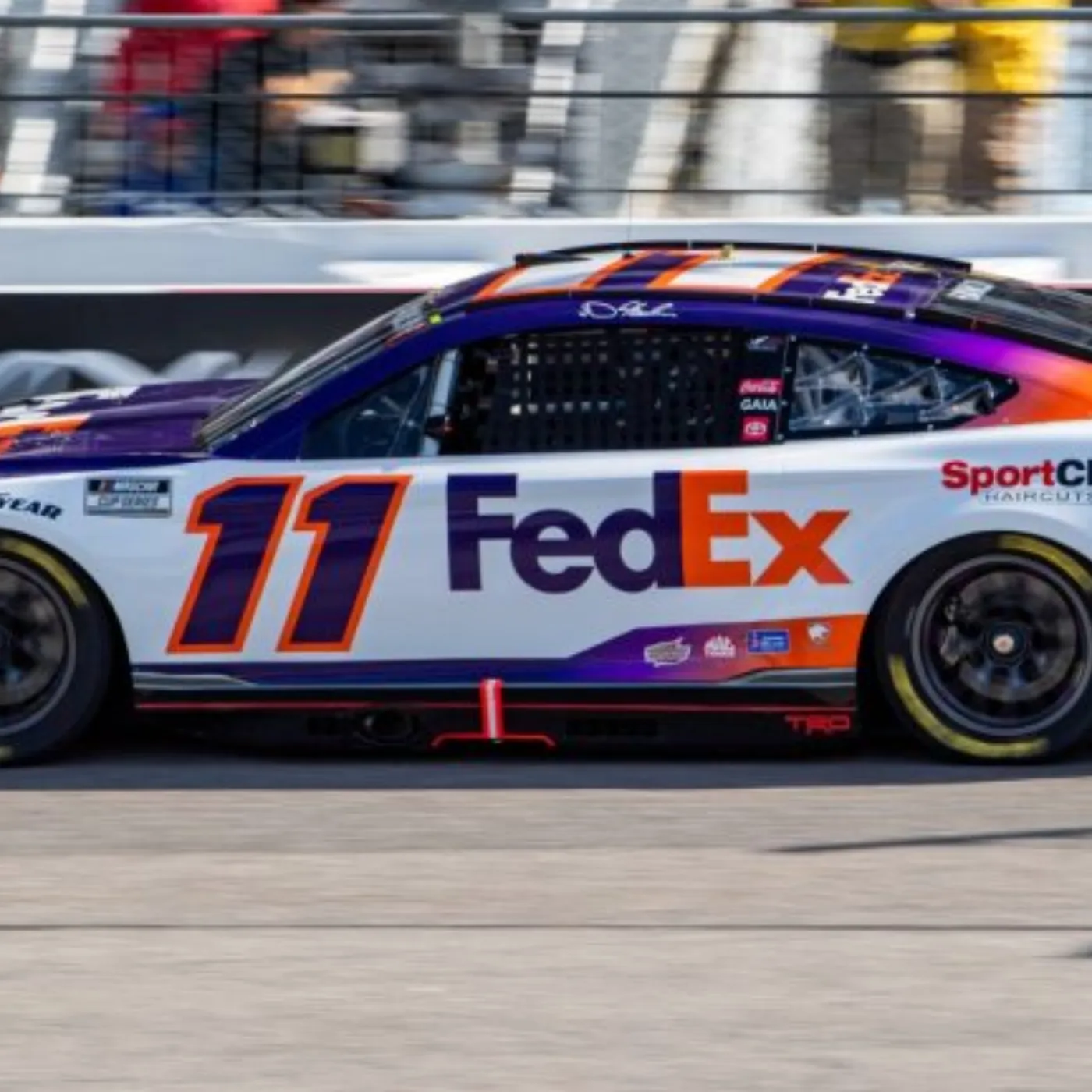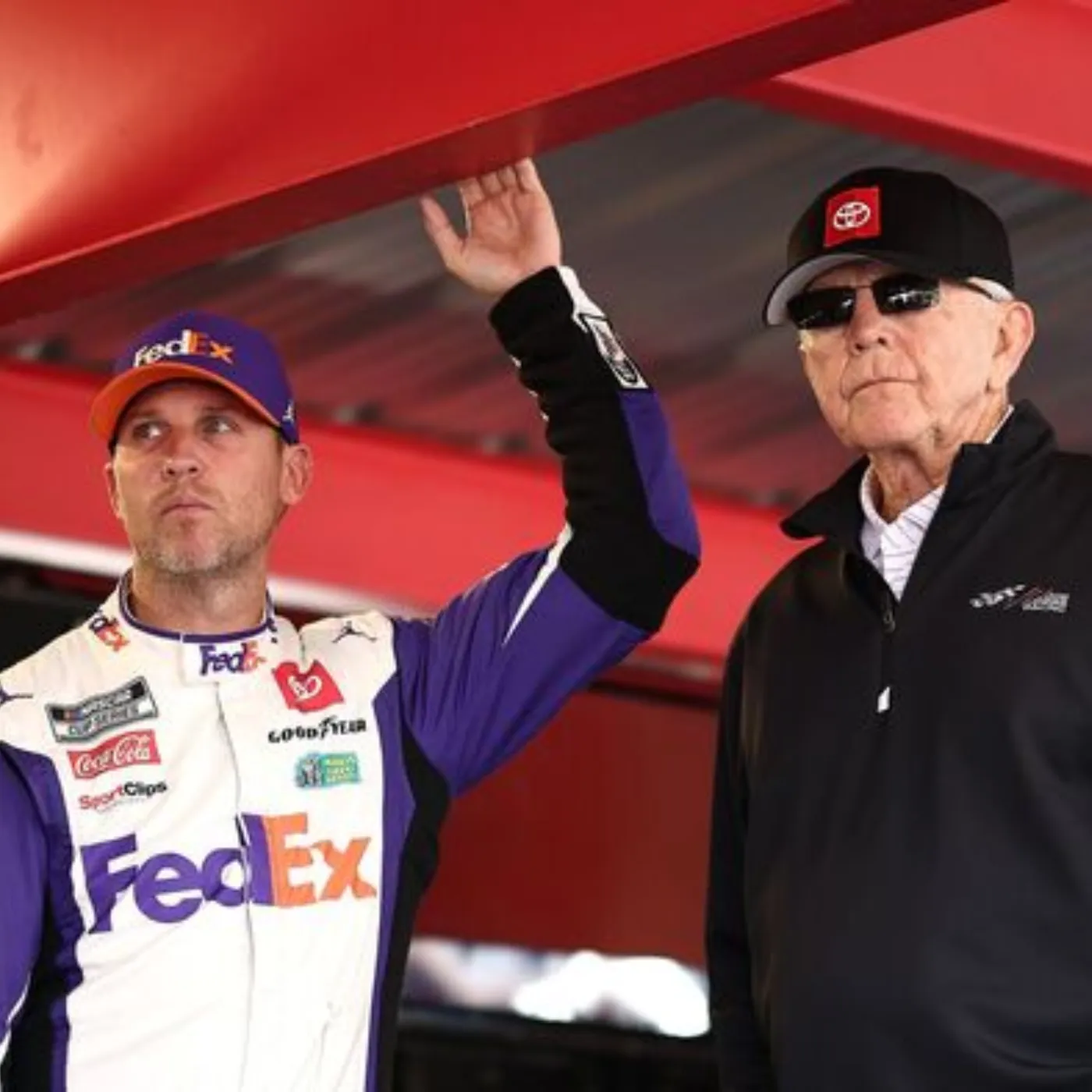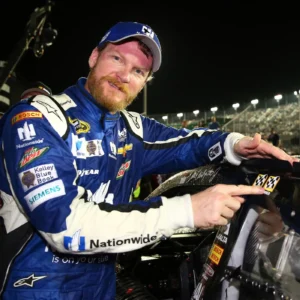NASCAR’s New Waiver Rule How Denny Hamlin Can Prioritize Family Without Sacrificing His Championship Pursuit

NASCAR’s latest waiver rule has sparked conversations and offered a much-needed lifeline to drivers like Denny Hamlin, particularly when it comes to balancing family responsibilities with the demanding NASCAR season. With his third child on the way this June, Hamlin is poised to welcome a new addition to his family, but this time, unlike in previous years, he won’t have to sacrifice the birth for racing duties.
The Baby Countdown and NASCAR’s Relief
As a father of two daughters, Taylor and Molly, Hamlin knows what it means to be there for significant family moments. He’s eagerly awaiting the arrival of his third child, with the baby expected around June 1st, right in the middle of the hectic NASCAR season. In the past, this would have meant a tough decision: either attend the birth or risk losing crucial racing points. However, the new rule changes that, offering Hamlin peace of mind that he won’t miss out on such a pivotal moment in his life.
The Waiver Rule: A Game-Changer for Drivers

In a recent episode of his podcast, Actions Detrimental, Hamlin candidly discussed the waiver rule’s impact on his family life. He confirmed that he will indeed be present for the birth, thanks to the policy that allows drivers to miss a race for family emergencies, such as the birth of a child. This flexibility is something drivers previously didn’t have, especially given the unyielding demands of the sport’s race schedule. Jared Allen, his co-host, verified the rule, highlighting its relevance for drivers like Hamlin in this personal and professional balancing act.
A Strategic Move by NASCAR: Fairness or Favoritism?
The waiver rule has a controversial history, originating from the Kyle Larson incident in 2024, where the driver sought an exception to race both the Indy 500 and the Coca-Cola 600 on the same day. After missing a NASCAR event due to a rain delay overlap, Larson received a waiver, sparking debates about the fairness of such exceptions. To address concerns and maintain competitive integrity, NASCAR introduced stricter guidelines, ensuring waivers aren’t handed out too freely but instead only for legitimate reasons like family emergencies or medical crises.
Playoff Points and Waivers: A High-Stakes Trade-Off
Despite the added flexibility for family matters, the waiver rule comes with significant trade-offs. Drivers who are granted a waiver will enter the playoffs without any accumulated points. This is a crucial consideration, as playoff points earned during the regular season typically offer a strategic advantage when aiming for the championship’s final weeks. Hamlin, whose career is still chasing that elusive first NASCAR Cup Series championship, faces a tough balance between family obligations and the pursuit of racing glory. While the new rule is a welcome change for drivers, it could also complicate their championship aspirations, as the absence of race points could put them at a competitive disadvantage.

Other Exceptions and Controversies Ahead
The waiver rule also outlines that certain family crises and medical emergencies are valid reasons for missing a race. However, it’s crucial to note that suspensions, whether on or off the track, will not qualify a driver for a waiver. Even if a driver is suspended for a race, they could still make the playoffs, but they would forfeit all earned playoff points. This adds an extra layer of intrigue as drivers navigate these rules to remain competitive in an already challenging season.
The Future of NASCAR: Adapting to New Regulations
As NASCAR continues to evolve, these waiver guidelines offer an interesting dynamic in how drivers plan their seasons. With Hamlin’s upcoming family milestone, his ability to adjust without fearing penalties demonstrates the flexibility NASCAR now offers. As this season progresses, it will be fascinating to see how other drivers balance their professional ambitions with personal lives under these new policies.
The waiver rule could very well be a game-changer for future generations of NASCAR drivers, offering them a chance to experience family milestones while staying in the championship race.






